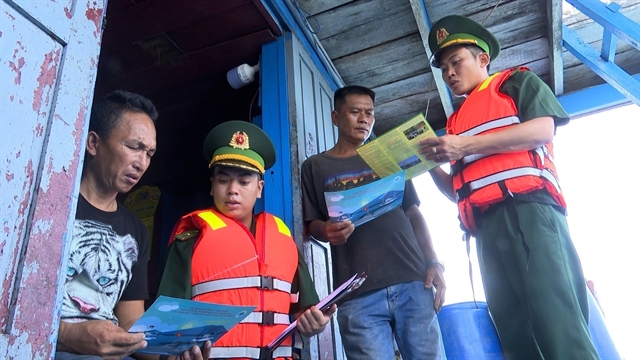 World
World

Mexican fishing authorities have boycotted the effort to save the critically endangered vaquita marina porpoise, environmentalists said on Monday, calling them "accomplices" in the near-extinction of the world's smallest porpoise.
MEXICO CITY — Mexican fishing authorities have boycotted the effort to save the critically endangered vaquita marina porpoise, environmentalists said on Monday, calling them "accomplices" in the near-extinction of the world’s smallest porpoise.
While Mexican President Enrique Pena Nieto has embarked on a much-vaunted campaign to save the estimated 30 vaquitas that remain – winning the backing of Hollywood star Leonardo DiCaprio and billionaire Carlos Slim – the effort is too little, too late, said Greenpeace and other groups.
Worse, fishing authorities in Pena Nieto’s own government have contributed to the vaquita’s demise, they told a press conference.
The National Aquaculture and Fishing Committee (Conapesca) "has been an accomplice within the government in pushing the vaquita to the near-imminent extinction it faces today," said the head of Greenpeace Mexico, Miguel Rivas.
The groups accuse Conapesca of failing to carry out inspections to detect illegal fishing, raising the limit of fish that boats are allowed to bring in and increasing the number of boats authorized to fish in vulnerable areas.
The vaquita is found only in the Gulf of California, which is also the source of half of Mexico’s fisheries production.
It has been nearly wiped out by gillnets used to fish for another species, the totoaba fish, whose swim bladder is considered a delicacy in China and can fetch $20,000 per kilogramme.
In June, Mexico announced a series of measures to protect the vaquita, including a permanent ban on gillnet fishing in its habitat.
The government has also launched an unusual program to use dolphins trained by the US Navy to find vaquitas so they can be ushered into a $4-million marine reserve.
Activists criticised what they called major shortcomings in those efforts, and said fishing authorities were only concerned with boosting fisheries output.
"The fishing authorities in this country are hoping the vaquita will disappear so they can say goodbye to the problem once and for all," said biologist Maria Elena Sanchez of the environmental group Teyeliz.
Conapesca officials were not immediately available to comment. — AFP




